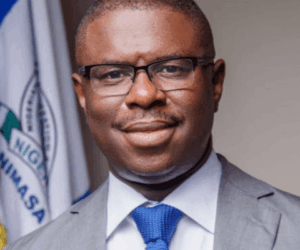It often begins quietly. A leader enters a meeting, asks for feedback, and is met with silence. Ideas that once flowed with energy now trickle at best. Performance reports still look solid, but something invisible has shifted. The team no longer risks honesty. They have learnt that speaking up carries more danger than reward. The innovation engine hasn’t broken; it’s stalled because psychological safety has disappeared.
Psychological safety is the unspoken contract that says, “I can share an idea, voice a concern, or admit a mistake without fear of embarrassment, punishment, or career damage.” It is not about coddling or lowering standards. It is about courage, truth-telling, and creating the conditions where people can bring their full intelligence to the table. Without it, organisations don’t just lose candour; they lose creativity, accountability, resilience, and ultimately their competitive edge.
In my work with executives and organisations, I have seen this pattern repeatedly. Leaders mistake silence for agreement. They interpret compliance as commitment. Yet beneath the surface, employees are disengaging not because they lack ideas but because they lack safety. And when safety is absent, the most talented voices are often the first to retreat. That withdrawal rarely shows up on spreadsheets immediately, but over time, it erodes innovation, retention, and trust.
Research validates this truth. Amy Edmondson, who pioneered the study of psychological safety, found that the highest-performing teams are not those who make the fewest mistakes. They are the ones who are quickest to surface, discuss, and correct them. In fact, Edmondson’s studies showed that psychologically safe teams often reported more errors, not because they were less competent, but because they were more candid. Silence doesn’t reduce mistakes; it hides them.
Google’s landmark Project Aristotle reached a similar conclusion. After studying 180 teams across the company, researchers expected to find that the most effective teams were defined by intelligence, diversity, or leadership charisma. Instead, they found that the single biggest predictor of team success was psychological safety. Where safety thrived, collaboration and innovation surged. Where it was absent, even the most brilliant individuals underperformed.
Leaders often fail to grasp this distinction. They believe authority guarantees obedience, and obedience ensures performance. But performance without safety is compliance, not commitment. Compliance delivers today’s metrics, but it strangles tomorrow’s breakthroughs. Silence is not the absence of problems; it is the absence of permission to confront them.
The good news is that psychological safety is not an abstract ideal. It can be built, modelled, and strengthened through intentional leadership practices.
The first practice is modelling curiosity. When leaders ask questions without preloaded judgement, they create permission for exploration. Curiosity communicates: “I don’t have all the answers, and your perspective matters.” Over time, this signals that contribution, not perfection, is the expectation. A single curious question can unlock more innovation than an hour of directives.
The second practice is rewarding candour, not just results. Leaders often celebrate outcomes while overlooking the courage it took to voice a dissenting view. But when someone surfaces an uncomfortable truth or points out a hidden risk, that act deserves recognition. Candour saves organisations from blind spots that performance metrics alone cannot reveal.
A third practice is creating “no retribution” zones. Teams flourish when they know that voicing dissent will not result in subtle punishment, whether through exclusion, lost opportunities, or quiet retaliation. Leaders must make clear and prove through action that candour carries no penalty. One public demonstration of fairness in response to criticism can echo for years in an organisation’s culture.
Fourth, leaders must normalise vulnerability by admitting their own mistakes. When a leader openly says, “I got this wrong,” it signals that error is not shameful but human. Vulnerability from the top liberates honesty at every level and removes the illusion that leadership means infallibility.
Finally, leaders must replace defensive listening with generative listening. Too often, feedback is heard as a threat to authority rather than an invitation to growth. Generative listening asks, “What can I learn from this perspective?” rather than “How can I defend against it?” That subtle shift transforms conflict into collaboration and positions leaders as learners, not gatekeepers.
When psychological safety becomes a cultural rhythm, organisations unlock the hidden capacity of their people. Neuroscience shows that fear restricts cognitive processing, narrowing attention and stifling creativity. But safety lowers cortisol, raises oxytocin, and opens the brain to expansive, innovative thinking. Safety, in other words, is not soft. It is strategic.
Reflect for a moment: do your people feel safer staying silent than speaking truth to you? When was the last time you admitted a mistake to your team? Do you unintentionally punish candour through your body language, tone, or defensiveness? If innovation feels stalled, could fear, not talent, be the real barrier?
This week, test yourself. Choose one meeting, one team, one relationship where silence has taken root. Ask this simple question: “What’s one thing you have been holding back from telling me?” Then pause. Listen without defence. And most importantly, thank them for their courage. No defensiveness, no explanations. Just gratitude.
Psychological safety doesn’t arrive in a single moment. It is built on the daily deposits of curiosity, candour, vulnerability, and listening. Leaders who make those deposits unlock voices, ideas, and innovations that authority alone can never command. And leaders who ignore it may one day discover that while they still hold authority, they no longer hold creativity, honesty, or the future.
About the author:
Dr Toye Sobande is a strategic leadership expert, executive coach, lawyer, public speaker, and award-winning author. He is the CEO of Stephens Leadership Consultancy LLC, a strategy and management consulting firm offering creative insight and solutions to businesses and leaders. Email: [email protected]









